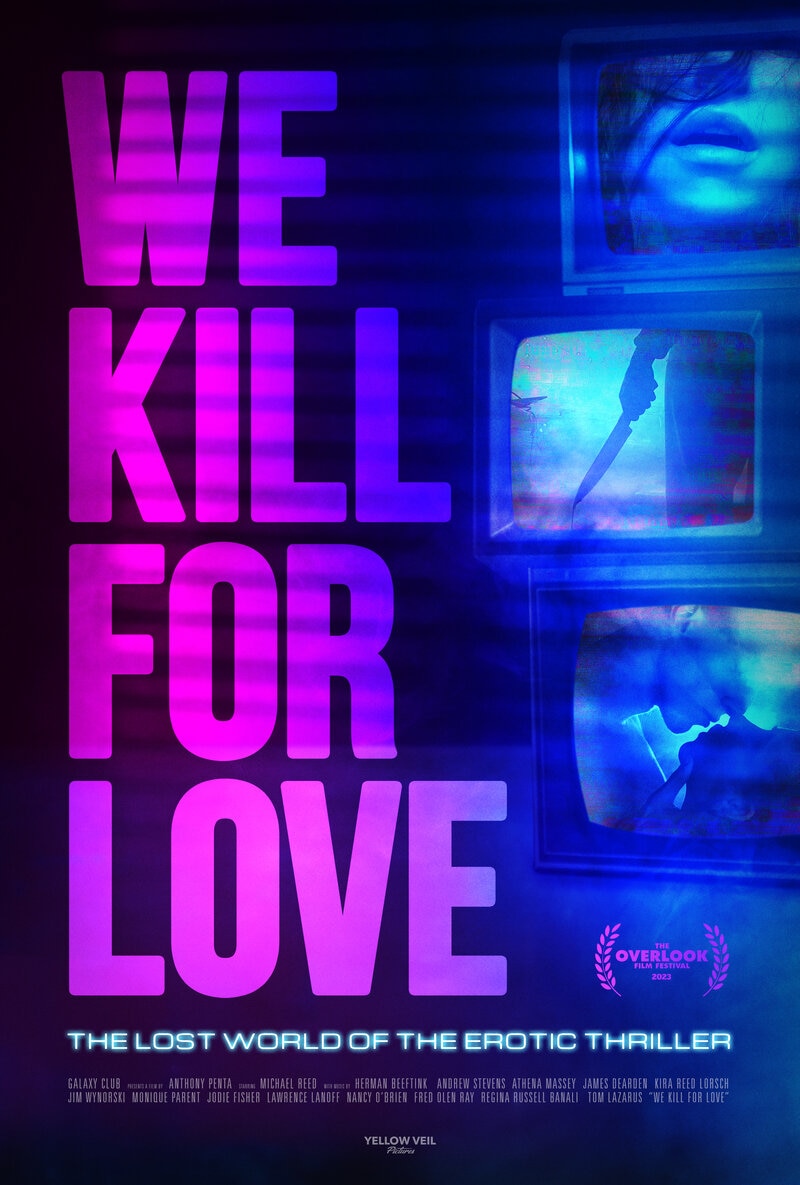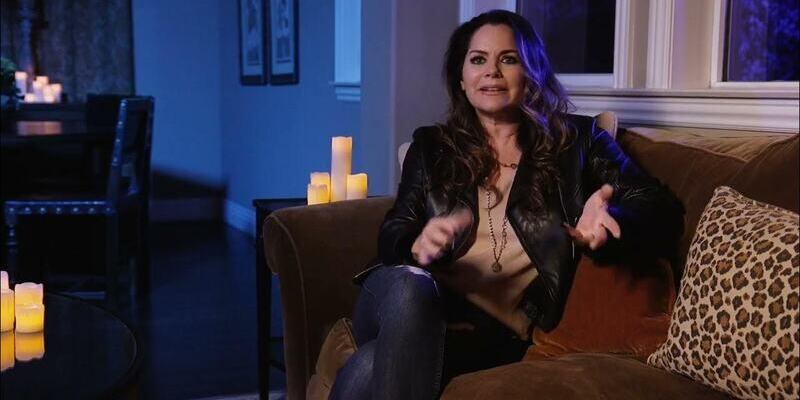
Review by
Eric Hillis
Directed by: Anthony Penta

Even the most disreputable of film sub-genres will inevitably find
themselves re-evaluated at some point. They don't come much more
disreputable than the "erotic thriller," a sub-genre which flourished in
the 1990s and has recently found itself the subject of critical
reassessment. At time of writing the cinephile streaming service
Criterion Channel is hosting a retrospective of the sub-genre, and it's
also the subject of a season of Karina Longworth's
acclaimed 'You Must Remember This' podcast. With sex having practically
disappeared from American mainstream cinema over the last decade or so,
and unlikely to return in this post MeToo era where the consensual baby
has been thrown out with the non-consensual bathwater, audiences are
beginning to grow nostalgic for that most unlikely of reappraisal-worthy
movements – the straight to video erotic thriller.
Enter director Anthony Penta, who has spent six years assembling
his deep dive into the sub-genre, We Kill For Love, and finds his film fortuitously arriving amidst a swell of interest
in its subject matter.

Aping highly sexualised cable shows like
Red Shoe Diaries and The Hitchhiker, Peta sets up his exploration through the figure of "The Archivist"
(Michael Reed), who enters an abandoned office littered with VHS
tapes and breaks down the documentary into various chapters.
Some of these chapters are focussed on individual movies. Along with
blockbusters like Fatal Attraction and
Basic Instinct, straight to video titles like the Night Eyes series
also get their due. It's a decidedly democratic approach to the
movement, as it should be given how the vast majority of its output
skipped cinemas.

Other chapters are centred on the stars and filmmakers involved in the
sub-genre, including former Dallas star turned king of the
erotic thriller Andrew Stevens, who tells some great
anecdotes about how he found inspiration for
Night Eyes and how he insisted on having a box around his
name on movie posters; prolific directors Jim Wynorski and
Fred Olen Ray; and of course the many leading ladies, including
Monique Parent, Jodie Fisher and Kira Reed Lorsch. Like
visual boxouts, there are fun diversions examining the tropes of the
sub-genre, like how everyone involved seems to drive a red sportscar and
live in a barely furnished white house in the Hollywood hills, and the
impractical abundance of candles dotted about in love scenes.
Penta goes back to the era of film noir, with its femme fatales, and of
Hitchcock's obsessed male protagonists to find the roots of the erotic
thriller. Of course, it's '80s hits like 9½ Weeks and
Fatal Attraction that really kicked off the movement, both
of which are given due consideration, but it's odd that Steven
Soderbergh's Sex, Lies and Videotape is never brought up,
given its massive influence in combining eroticism with arthouse and
independent cinema. That's a notable omission however in a doc that
fills its almost three hour run time with mention of practically every
title you could think of with regards to erotic thrillers, or at least
those made in the US. My only other gripe is that Penta narrates the
film himself, and given how much time is spent noting how
female-dominated the sub-genre is, it feels like a misstep not to have a
female narrator.

Perhaps what We Kill For Love highlights most of all is
how well shot many of these movies were. Despite being made to be seen
on VHS or late night cable channels in standard definition, they often
featured the sort of expressionist lighting and framing that makes the
average modern Hollywood production look like a sitcom in comparison. As
various contributors point out, the producers may have just wanted to
put out movies they could market for their sexual content, but behind
the camera were often talented creatives determined to make the best
erotic thriller possible.
As an overview of a sub-genre, We Kill For Love isn't
quite in the same league as the Ozploitation doc
Not Quite Hollywood or the recent folk-horror deep dive
Woodlands Dark and Days Bewitched. But it's not far off, and you may well find yourself jotting down the
titles of movies that you glanced past in video stores 25 years ago.
Yesterday's trash is today's treasure.

